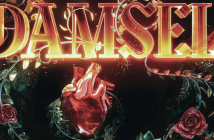Retellings—writers love writing them, readers love reading them, but why? Why do we return to the same stories again and again? Whether they are fairy tales, myths or classic literature, what is it about these stories that keep us coming back?
As the writer of Lifestyles of Gods and Monsters, a retelling of the ancient Greek Minotaur myth with a reality TV setting, I have some theories.
Retellings can give us a familiar story in a new setting.
Think about Marissa Meyer’s Lunar Chronicles. Fairy tales with cyborgs? Colonies on the moon? It’s all amazing and new and crazy, but because it’s a retelling of a fairy tale that we know, we are looking for the story elements that we expect.
When Cinder loses her cybernetic foot at the ball, it is something that I expected from the very beginning, but it’s still awesome. It’s like watching a gymnast land a flip off the balance beam at the Olympics—expected, amazing, and deeply satisfying.
Retellings can let us see an story from a new point of view.
This is an old trick—make the villain the hero, or make the sidekick the main character—but if it’s done right, it can overturn our whole understanding of things.
If we find out that the Wicked Witch isn’t wicked (as we do in Gregory Maguire’s Wicked and the musical of the same name), it means that when we get to the part of the story where she’s killed with a bucket of water, a triumphant victory switches into something tragic.
Or if Dorothy and the Tin Man and the Scarecrows are the villains of the story as in Danielle Paige’s Dorothy Must Die, you have to rethink everything you knew before.
This point-of-view switch can be especially illuminating when dealing with stories with a bunch of unexamined baggage.
(For example, any Shakespeare play, where, much as I love them, no more than two women can be on stage at one time because they only had two boy actors to play them. What happens when you take the story and open it out, so that it is a world full of the full range of people, in his time or in ours? You have something new.)
Retellings can surprise us.
 What all the best retellings have in common is that they lead us from the story we know into something new. In Brittany Cavallaro’s Charlotte Holmes novels, Charlotte and Jamie start off with pieces of the characters they are based on, and the mysteries they encounter also share elements from the Sherlock Holmes stories, but as we read along, we don’t know what will stay and what will be left behind.
What all the best retellings have in common is that they lead us from the story we know into something new. In Brittany Cavallaro’s Charlotte Holmes novels, Charlotte and Jamie start off with pieces of the characters they are based on, and the mysteries they encounter also share elements from the Sherlock Holmes stories, but as we read along, we don’t know what will stay and what will be left behind.
The story becomes a kind of tapestry, with the reader’s expectations and the writer’s storytelling skill working together to make something new.
Writing a retelling, this was of crucial importance to me. I don’t want readers to know whether my story is going to end the way the myth does. (And no, I’m not telling you what I decided to do.)
Retellings put us all into the story.
The reason that I love retellings, both writing them and reading them, is that they make me feel like I’m part of an ongoing bigger story, told and retold.
The story itself is a mighty river, made up of all the versions that have come before, and we’re throwing in our canoes and going for our own journeys on it, and maybe this time, we’ll see something new, something we never spotted before.




